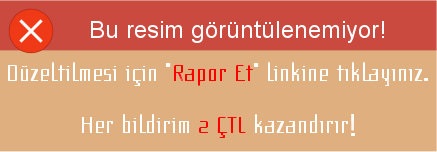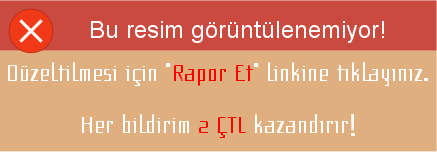
ISTANBUL — After nearly a century of looking serious, Mustafa Kemal Ataturk, the founder of modern Turkey, has started to smile.
Ataturk — a war-hero-turned-statesman who defended Turkey during the partitioning of the Ottoman Empire — is the subject of what is perhaps the world’s longest personality cult.
His portrait hangs in every tea shop, government office and classroom. Insulting his memory is a crime under Turkish law. And every Nov. 10, Turkey observes a moment of silence to commemorate his death in 1938.
But the ironclad official version might be softening. Last month a documentary on Ataturk was released that looks at his human side. That might not sound like much, but in a country where official history is kept under lock and key, the film, “Mustafa,” was a brave endeavor.
The film is by no means an effort to tear the leader down. It is a largely sympathetic portrayal. But the mere fact that its director, Can Dundar, was able to show Ataturk looking less like a bronze statue and more like a man with a bad drinking habit who sometimes got bored, says a lot about how far Turkey has come in the past 10 years.
“Can Dundar opened the gates of an ivory cage that we have locked ourselves in,” Mehmet Ali Birand, a journalist, wrote in the daily newspaper Posta.
Founded in 1923, modern Turkey in its early years was monochromatic, as authorities scrubbed the country of differences to forge a national identity. But as wealth and democracy have increased, so have efforts to re-evaluate the past, bringing some of those differences, ethnic and religious, into focus.
Turkish intellectuals like Mr. Dundar have begun to question the official line, opening up painful debates on topics that have long been considered closed. Ataturk, whose name means father of the Turks, was one of the most important figures of the 20th century, but his story is not broadly known in the West, in part because his godlike status in Turkey has made it too politically prickly to tell.
Previous attempts to tell it on film have failed. In an article last year titled “The 56-Year Story of the Unmade Ataturk Film,” an English-language newspaper, The Turkish Daily News, said, “Actors have grown old waiting for the role,” citing reported efforts by Antonio Banderas, Kevin Costner and Yul Brynner.
“Turkey would never want to see its founding father, which it sees as a holy person, be portrayed as a person with human weaknesses,” the paper said.
That trait is at the heart of many of this country’s problems. Turkey has a tremendous capacity for denial, which includes the Armenian genocide early in the last century and a large Kurdish minority whose existence the state is only beginning to acknowledge. Without facing that history, intellectuals here argue, Turkey will never be able to move beyond it.
“Ataturk is used as a shield by those who are blocking discussions on many deformities in this country,” wrote Ahmet Altan, one of the country’s most prominent intellectuals and a columnist for Taraf, a liberal daily newspaper. “They attribute godlike status to Ataturk and then hide behind it.”
Mr. Dundar drew on a wide selection of Ataturk’s diaries and letters that had been closed in military archives for decades. The man who emerges in the film is even more radical in his beliefs than Turks have been taught, Mr. Dundar said.
Ataturk was determined, for example, to subordinate Islam and to force Turks to look and behave as Westerners. In 1914, Mr. Dundar said, the 33-year-old Ataturk attended a ball in the Czech spa of Carlsbad with a Turkish diplomat and his wife, who remarked that she could not imagine such a scene — the dancing, the dress — in her home country.
In a later entry in his diaries, Ataturk wrote that “it would not be difficult at all,” Mr. Dundar said. “If I would be given the power, I would do it overnight,” Ataturk wrote.
“Ataturk didn’t believe it should happen over time,” Mr. Dundar said. “He thought it should be abrupt.”
Mr. Dundar said he could use only a small fraction of the material he sifted through that revealed something about Ataturk’s thoughts on Islam. The rest was too explosive, he said.
There were a few sharp divergences from the official history, though the film veered close. In one scene, Ataturk says, just before an address to an early Parliament, that he believes the areas populated predominantly by Kurds should have a special status. The concept is extremely controversial in Turkey, which fears that its largely Kurdish southeast will want to secede, and discussions of special status for the region are stri
 y taboo.
y taboo.The film, which opened on Oct. 29, National Day, and is being shown in more than 200 theaters around Turkey, was praised by intellectuals but drew a frenzy of angry reactions. (Mr. Dundar, knowing the delicacy of the topic, preferred to speak in his native Turkish for the interview for maximum precision of language, though his English is fluent.)
“Your production is a priceless source for people who want to tarnish young minds with their dark thoughts,” wrote a viewer on the movie’s Web site who identified herself as Tulay. “Surely, you would also qualify for a Nobel Prize,” he wrote in a reference to the Nobel Prize-winning Turkish novelist Orhan Pamuk, who was spurned by the Turkish establishment after discussing the Armenian genocide.
“I denounce you.”
Nevertheless, the kinder, gentler Ataturk seems to be a turning point of some sort for Turkey. Even the Turkish state seems to feel the need for some adjustments: New bank notes planned for circulation in 2009 picture the leader smiling, not scowling.
Sebnem Arsu contributed reporting.
This article has been revised to reflect the following correction:
Correction: November 19, 2008
The Istanbul Journal article on Thursday, about the mixed reaction in Turkey to an unflattering documentary film about Mustafa Kemal Ataturk, the founder of modern Turkey, referred incorre
 y to a viewer who criticized the film in a posting on the film’s Web site. The viewer, who signed the posting as Tulay, is a woman.
y to a viewer who criticized the film in a posting on the film’s Web site. The viewer, who signed the posting as Tulay, is a woman.More Articles in World »A version of this article appeared in print on November 13, 2008, on page A10 of the New York edition.


